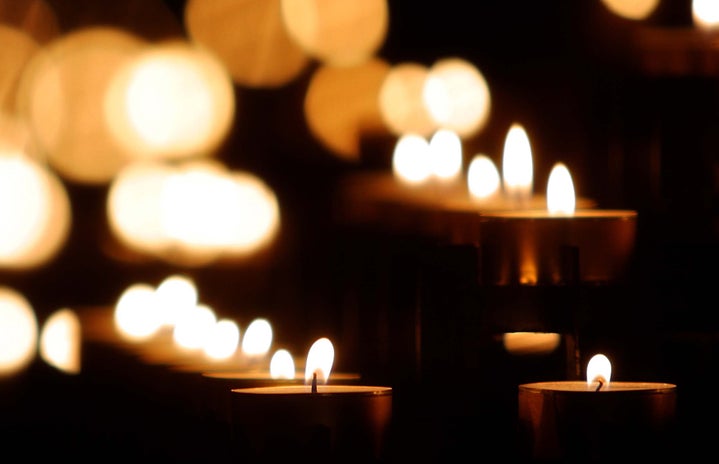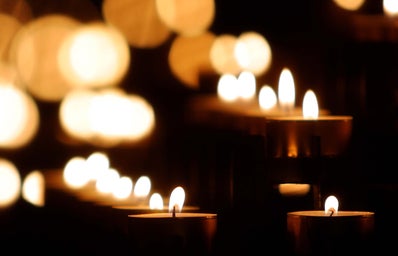Despite a wonderfully sunny November and warm fingers of summer that have stretched far into fall, the gloom of exam season and the coming winter are still settling upon campus. Less laughter on the sidewalks, dreary treks to class in rain blown horizontally by vicious Lake Ontario wind, cold feet in damp socks and glum faces in the library: common sights to behold at Queen’s on the cusp of December. The general atmosphere of a student population turning inwards to study before the holiday season has me reflecting on times of life that come with interminable checklists, untouched by sunshiny days of the past.
One of the exams I’m currently studying for is for my course on the Literature of Addiction, which has surveyed addiction narratives beginning with Thomas de Quincey’s 1821 Confessions of an English Opium Eater and ending with current writing surrounding the opioid crisis. Time and time again this course has asked its students to consider potential psychological predispositions towards addiction and the myriad of consequences of taking drugs, which has time and time again prompted me to consider religion. Without delving into the complexities of drug addiction, I have arrived at a conclusion: the general condition, in the literature of addiction and in November, is one of a crisis of faith.
Being an English student has exposed me to crises of faith in many different kinds of literature that come from all over the world, and these conditions are mirrored in everyday life at the personal and societal level. Whether it be a campus burdened by mental illness or a country politically at odds, all you have to do to witness a crisis of faith is open up Instagram and peruse a never-ending feed of bleak media posts and personal testaments of misery. People get stuck in their sadness, wherever that sadness comes from, and I think they find it hard to escape, especially during a time of life that is perhaps more difficult than usual. To me, the answer has always been and will always be faith, and this is why I have constantly turned to religion during my Literature of Addiction course. When hope cannot be found in the dismally mortal aspects of human life, it can always be accessed in the eternal unseen; in other words, all you have to do is believe in something that you’ve never seen.
While this might seem like a gross oversimplification of faith and an otherwise silly concept, it’s actually something that has gripped the human race for as long as we’ve been able to document our histories. There’s a reason why wars are waged over beliefs which have no direct, physical representation: many people and entire populations have always chosen to be guided by things they cannot see. As cyclical as it is to see the student population at Queen’s grow quieter in November before exams, so is a history which supports a repetition of human errors and successes.

Strikingly similar to our era of technology, The 18th century Enlightenment was known as the Age of Reason because it compounded developments in technology, industry, and politics into a school of thought which supported logical thinking. Philosophers disposed of pastoral ideas like art and religion in favour of rationality and the power of the brain. When people became tired of the coldness of pure reason, however, the Enlightenment gave way to Romanticism, and imagination was once again popular. Romantics championed subjectivity and celebrated the beautiful and oftentimes unseen things in life, like hope, faith, and love. Confessions of an English Opium Eater itself is an excellent example of a Romantic text because it prioritizes experience, emotion, and the individual, which the Enlightenment Era would have deemed excessive. At the turn of the Age of Reason into Romanticism, Mary Shelley, the author of Frankenstein, wrote an essay called “On Ghosts,” which in my view aptly summarizes the human need to believe in the unseen.
Short and seemingly simplistic, Shelley’s essay essentially asks us to consider believing in ghosts. Writing with a “why not?” attitude, she recounts several ghost stories and claims that in the Age of Reason, “the empire of the imagination” is “bounded in its own proper creations.” Intellectual pursuits elevate society but also restrict it by imposing boundaries upon the imagination that aren’t strictly necessary. For example, our technological society has made life easier in many respects, but it has also resulted in a worldly attitude which champions evidence and results. This isn’t a bad thing, but uncontrolled, it is limiting. Doctors have cures and AI has answers, but doctors and AI can’t always provide solace in trying times, especially with regards to mental health. Faith has fallen out of favour (again) and imagination put on the backburner, because neither are immediately or ever obvious.
I have hope that like the Romantics at the end of the 18th century, we, too, can return to the unseen in an effort to find comfort amongst the hardships. It feels frivolous and unserious to write on ghosts or to suggest that the best things in life have no evidence of existing, but this feeling is a consequence of the new age of reason. Constantly seeking evidence and results, we have forgotten, or perhaps haven’t ever experienced the resolution that lies in the unseen. Despite the seemingly trivial suggestion of being faithful, it’s actually difficult to believe, and this difficulty overcome brings real rewards in the form of comfort and hope. Spirituality is accessible to all human beings and is most obvious in the simple question posed by most children: “why are we here?” Engaging in the process of answering this question is a trying journey, but one which yields a hope unaffected by the trials and tribulations of everyday life. When your foundation is untouchable because it is unseen, so too is your resilience in the face of difficulty; when you find yourself mired in the day to day, consider reaching upwards to experience the imagination unbound.
We have the sun which has been weighed and measured, but not understood; we have the assemblage of the planets, the congregation of the stars, and the yet unshackled ministration of the winds:–such is the list of our ignorance
Mary Shelley, “On Ghosts”




